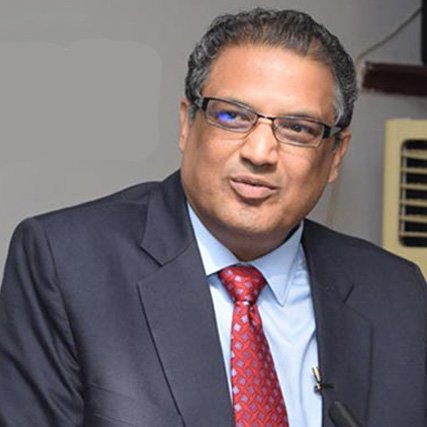People are experts in spreading baseless rumors; years ago, a former editor sitting in America even made a video claim that this humble one arranged a meeting and a deal between the exiled Nawaz Sharif and General Asim Munir. Moreover, a former Chief Minister of Punjab and his “talented” son were also at the forefront of flying this news, although till that time I had never seen General Asim Munir face to face except on television. Since General Asim Munir became Army Chief, one keeps hearing both unseen praise and criticism about him. In one meeting, Prime Minister Shehbaz Sharif, while presenting a comparison of the Army Chiefs who came after 1985, made it clear with examples that General Asim Munir is different and better than all of them. He also told me that his outstanding quality is that he does not show the ball here and throw it there, nor does he play on both sides of the wicket. Similarly, my decades-old close friend Mohsin Naqvi, in every meeting, would open a whole register of events and qualities of the General. Mohsin Naqvi knows the art of burying secrets deeply, of few words, and of quietly avoiding every question; what storms are raging inside him become apparent to friends from the expression on his face, but he himself never opens his tongue about it. As a journalist, compelled by curiosity, I kept saying to Mohsin Naqvi in a friendly and sometimes complaining tone that arrange a meeting with the General. Mohsin Naqvi would laugh and say, I have given your message, but he does not want to meet journalists. Once, in Islamabad, a bitter exchange happened with Mohsin Naqvi that you do not even deliver my message, otherwise how could the meeting not happen. The next morning, Mohsin Naqvi told me that I delivered your letter and message to the General, and he smiled and handed it over to ISI Chief General Asim Malik. I did not believe Mohsin Naqvi’s words and thought this was only to put me off, but the next day, at the ceremony in the Presidential Palace to honor the Prime Minister of Malaysia, for the first time I exchanged greetings with General Asim Munir. He not only confirmed the message of the previous day but also smilingly acknowledged my requests from time to time and said that surely we will meet soon.
Finally, that first meeting happened in the city of Brussels, Belgium. It was the first meeting, I had never had any secret meeting before nor this one, it was a meeting of a humble journalist and the Field Marshal in which there were my rough questions and his clear and transparent answers. The talk started with politics, especially about those rumors that work was being done to change the President of Pakistan and the Prime Minister. General Asim Munir, both in the Brussels rally and in my two-hour long sitting with him, clearly said that the rumors about change are utterly false. When he was asked that all these reports came from civil and military agencies, he said that is not possible; in fact behind them are elements opposed to both the government and the establishment who want to create political anarchy. About his intentions he said, standing on the stage, “God has made me the guardian of the country; apart from this, I have no desire for any office. I am a soldier, and my greatest wish is martyrdom.” General Asim Munir kept repeatedly appreciating the prudence of the political government and especially Prime Minister Shehbaz Sharif’s sincere 18-hour work; he said that during the war the Prime Minister and cabinet showed determination and courage that should be praised.
Regarding a political question, he said that political reconciliation is possible by sincerely asking for forgiveness. In this context, he recited on stage the text and translation of the Quranic verses about Adam’s creation and the role of Satan, from which it was clear that in the beginning the angels had an issue with Adam, but when God created Adam then except Iblis all the angels accepted man as God’s command and miracle. Thus, the angels who asked for forgiveness remained, and the one who did not ask for forgiveness became Satan. Regarding the solution of the economic crisis, he had a complete road map in which there was planning to stand Pakistan in the ranks of developed countries within five and ten years. He calculated and explained that from next year Reko Diq will yield two billion dollars pure profit every year, which will keep increasing year after year. He said that Pakistan has rare earthly treasure; from this treasure Pakistan’s debt will also be paid off and Pakistan will soon begin to be counted among the most prosperous societies.
Regarding international affairs, he said that Pakistan has long experience of maintaining balance between China and America: “We will not sacrifice one friend for another.” He called President Trump’s desire for peace genuine and said that Pakistan took the initiative in recommending a Nobel Prize for President Trump, and now the rest of the world is following us.
Field Marshal General Asim Munir always exposes the evil designs of India and its Hindutva leader Modi. In Brussels too he warned India not to destroy Pakistan’s peace through proxies, and he also warned the Afghan government to stop the policy of pushing Taliban into Pakistan, otherwise it is obligatory on us to avenge the blood of every Pakistani. He said that for years and years we did favors and kindness to the Afghans, instead of repaying that, they are conspiring against us together with India.
This conference held in Europe’s central city Brussels was jointly organized by Syed Qamar Raza Shah, head of Overseas Pakistanis Foundation, and my family friend and benefactor Sardar Zahoor. Hundreds of overseas Pakistanis from all over Europe participated in it. General Asim Munir was welcomed as the victor of war; one overseas even bowed down and kissed his hands, many others after centuries praised him for the victory of a Muslim country over an infidel country.
General Asim Munir personally is far away from arrogance, although usually there is the noise of “move aside, move aside” around rulers and generals, but he stood for hours and met at least two to three hundred people, shook hands with each, got pictures taken, and also gave an answer to one or two questions of every visitor. On his face there was not annoyance but a light smile. One or two companions even advised that meeting so many people will create mismanagement, but he humbly said that these people have come from far away, they are eager to meet, so how can their hearts be broken? And then until the last overseas Pakistani shook hands with him and departed, he kept fulfilling this duty. A political worker said to me that “even political leaders do not have so much patience to be willing to meet every single person.” The Field Marshal kindly listened to the humble submissions of this humble one. The greatest call is precisely this: that the civilian system should keep running, it should be made more representative through expediency and reconciliation so that truly the foundation of a stable Pakistan can be laid.
 Colors
Colors  View Books
View Books 



